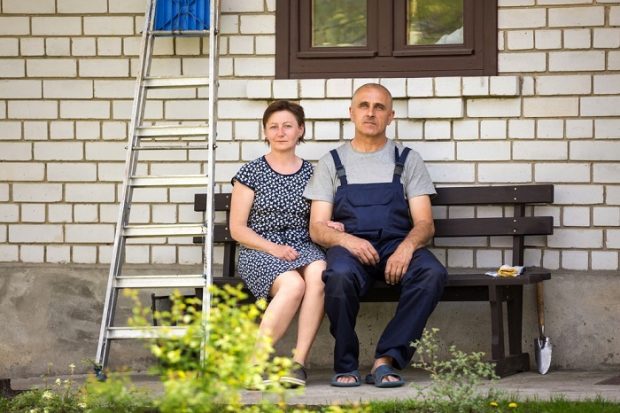 A new report points out that not only are people not saving enough for retirement, and living longer than expected, they're also cash poor and “house rich”—they own homes into which they've sunk a lot of money but have no way to access liquidity from them. (Photo: Shutterstock)
A new report points out that not only are people not saving enough for retirement, and living longer than expected, they're also cash poor and “house rich”—they own homes into which they've sunk a lot of money but have no way to access liquidity from them. (Photo: Shutterstock)
Amid the retirement crisis comes an idea that's both new and very old—life estates.
A Propmodo report points out that not only are people not saving enough for retirement, and living longer than expected, they're also cash poor and “house rich”—they own homes into which they've sunk a lot of money but have no way to access liquidity from them without either selling or resorting to reverse mortgages.
In fact, some estimate the amount of equity tied up in home ownership by seniors to amount to more than $6 trillion—that's trillion, with a t.
The latter were designed to help with that very problem, but they don't provide as much flexibility as seniors might want or need as they age—particularly if they need to relocate or go into a nursing home.
In addition, reverse mortgages acquired something of a predatory reputation, particularly since class action suits have alleged fraudulent behavior on the part of some reverse mortgage companies.
Enter the life estate, via retirement solution company Irene. Life estates, the report explains, are the ownership rights to a house for the duration of a senior's life. Under this system, investors can buy a house from the senior but grant them a life estate, allowing them to live in the house until their death.
“In Europe we have been doing this for hundreds of years,” Fabrizio Tiso, cofounder of Irene, is quoted saying. According to the report, he launched the company after becoming aware of how few options were available to seniors while working at Boston Consulting Group.
Tiso adds, “I kept thinking that the way it is in Europe, where people invest in each property individually is flawed. It would be much less risky to package them up into a larger fund.”
So that's what Irene does. Investors' money is pooled and seniors' homes are purchased, granting them a lump sum as well as a lifetime monthly payment in exchange. The fund then takes care of the taxes, insurance and upkeep of the homes, the report adds, so that seniors can have a guaranteed, steady income. “We want to make these peoples' lives easier so we don't want them to have to worry about house expenses,” Tiso says in the report.
That allows seniors to take advantage of the equity they've built up in their homes and stay put, without worrying that they'll run out of cash to keep their homes habitable.
© 2025 ALM Global, LLC, All Rights Reserved. Request academic re-use from www.copyright.com. All other uses, submit a request to [email protected]. For more information visit Asset & Logo Licensing.







